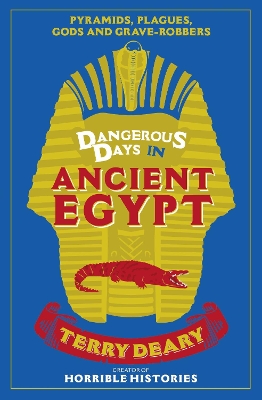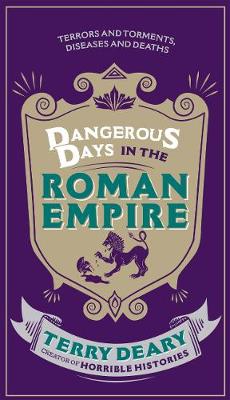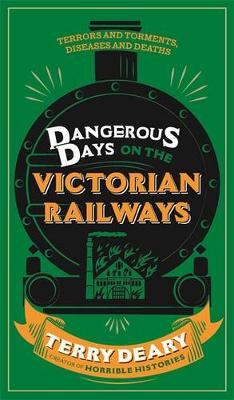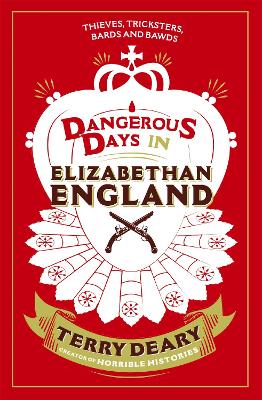Dangerous Days
4 total works
Think that Ancient Egypt is just a load of old obelisks?
Don't bet your afterlife on it.
Ancient Egypt should be deader than most of our yesterdays. After all it was at its height 5,000 years ago. Yet we still marvel at its mummies and ponder over its pyramids. It's easy to forget these people once lived and laughed, loved and breathed ... though not for very long.
These were dangerous days for princes and peasants alike. In Ancient Egypt - a world of wars and woes, poverty and plagues - life was short. Forty was a good age to reach. A pharaoh who was eaten by a hippo ended up as dead as a ditch-digger stung by a scorpion. Unwrap the bandages and you'll find that the Egyptians' bizarre adventures in life were every bit as fascinating as the monuments they left to their deaths.
DANGEROUS DAYS IN THE ROMAN EMPIRE is the first in a new adult series by Terry Deary, the author of the hugely bestselling Horrible Histories, popular among children for their disgusting details, gory information and sharp wit, and among adults for engaging children (and themselves) with history.
The Romans have long been held up as one of the first 'civilised' societies, and yet in fact they were capable of immense cruelty. Not only that, but they made the killing of humans into a sport. The spoiled emperors were the perpetrators (and sometimes the victims) of some imaginative murders. DANGEROUS DAYS IN THE ROMAN EMPIRE will include some of the violent ways to visit the Elysian Fields (i.e. death) including: animal attack in the Coliseum; being thrown from the Tarpeian Rock - 370 deserters in 214 AD alone (or if the emperor didn't like your poetry); by volcanic eruption from Vesuvius; by kicking (Nero's fatal quarrel with the Empress Poppea); from poison mushrooms (Claudius); by great fires; torturous tarring; flogging to death; boiling lead (the invention of 'kind' Emperor Constantine); or being skinned alive by invading barbarians.
DANGEROUS DAYS IN THE ROMAN EMPIRE looks at the back-story leading up to the victims' deaths, and in doing so gives the general reader a concise history of a frequently misunderstood era.
The infamous Staplehurst disaster is said to have traumatised passenger Charles Dickens, threatening to expose his affair with the young Nell Ternan, and altering his health and writing for the rest of his life. Often recognised as having revolutionised travel and industrial Britain, Victorian railways were perilous. Few other histories honour the lives of the people killed or injured by the diseases and disasters which accounted for thousands of deaths. The victims of the Victorian railways had names, lives and families, and they deserve to be remembered...
The reign of Elizabeth I - a Golden Age? Try asking her subjects...
Elizabethans did all they could to survive in an age of sin and bling, of beddings and beheadings, galleons and guns. Explorers set sail for new worlds, risking everything to bring back slaves, gold and the priceless potato. Elizabeth lined her coffers while her subjects lived in squalor with hunger, violence and misery as bedfellows. Shakespeare shone and yet the beggars, doxies and thieves scraped and cheated to survive in the shadows.
These were dangerous days. If you survived the villains, and the diseases didn't get you, then the lawmen might. Pick the wrong religion and the scaffold or stake awaited you. The toothless, red-wigged queen sparkled in her jewelled dresses, but the Golden Age was only the surface of the coin. The rest was base metal.



